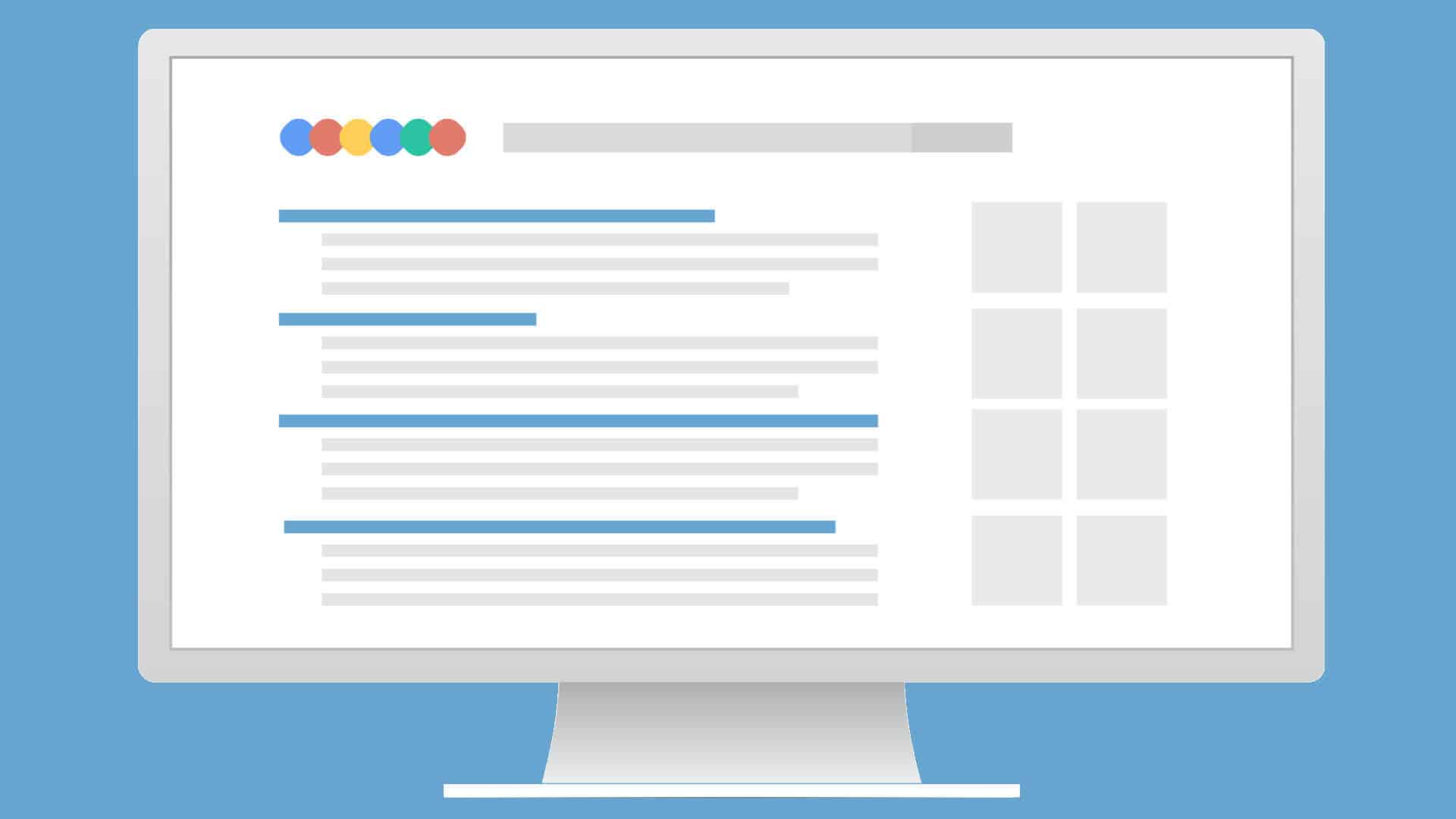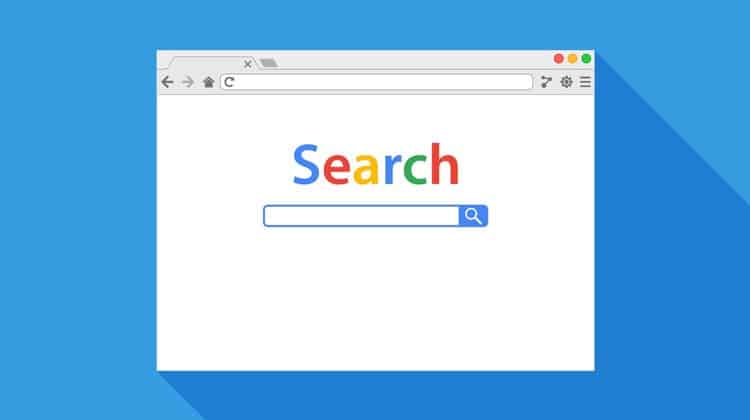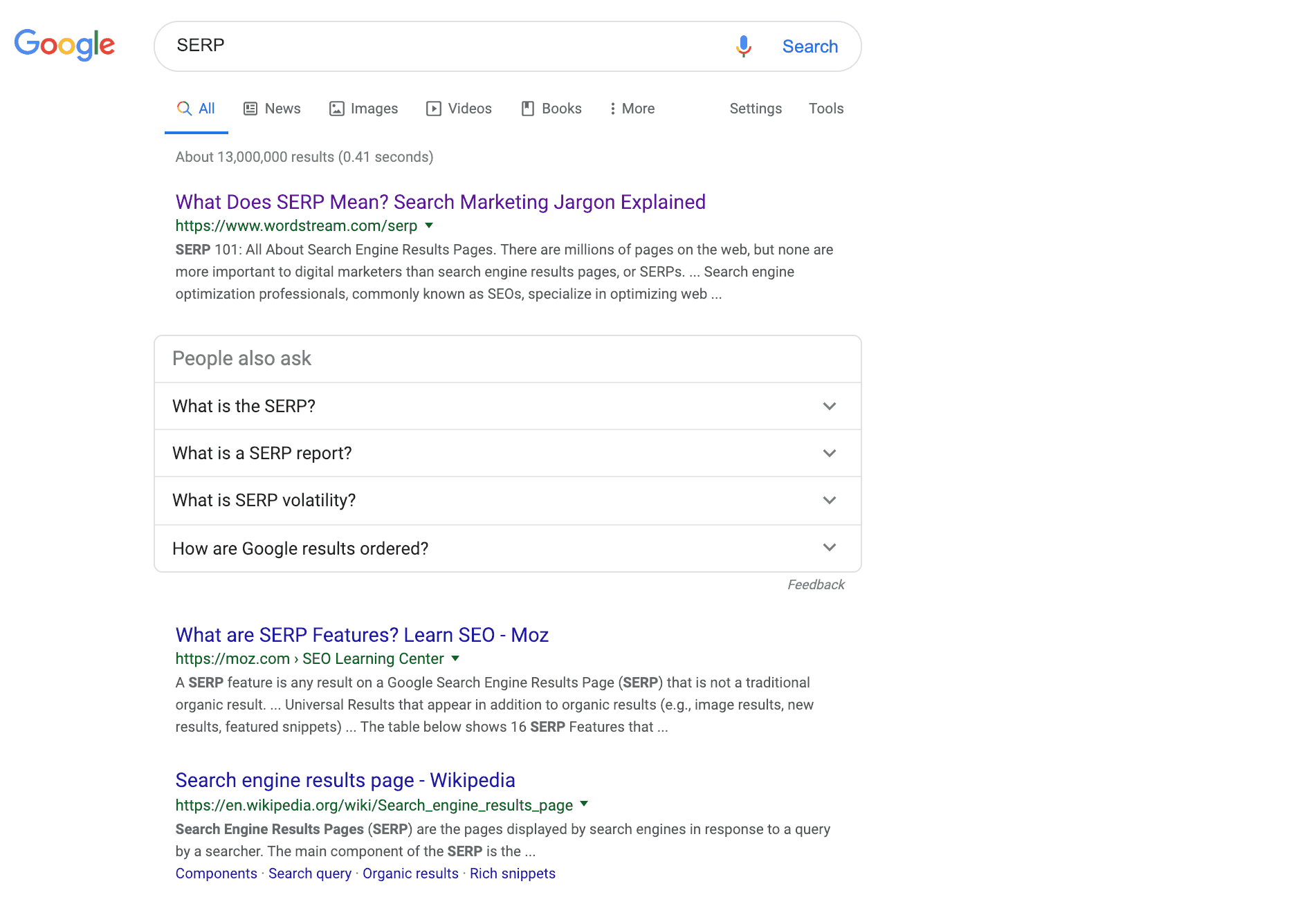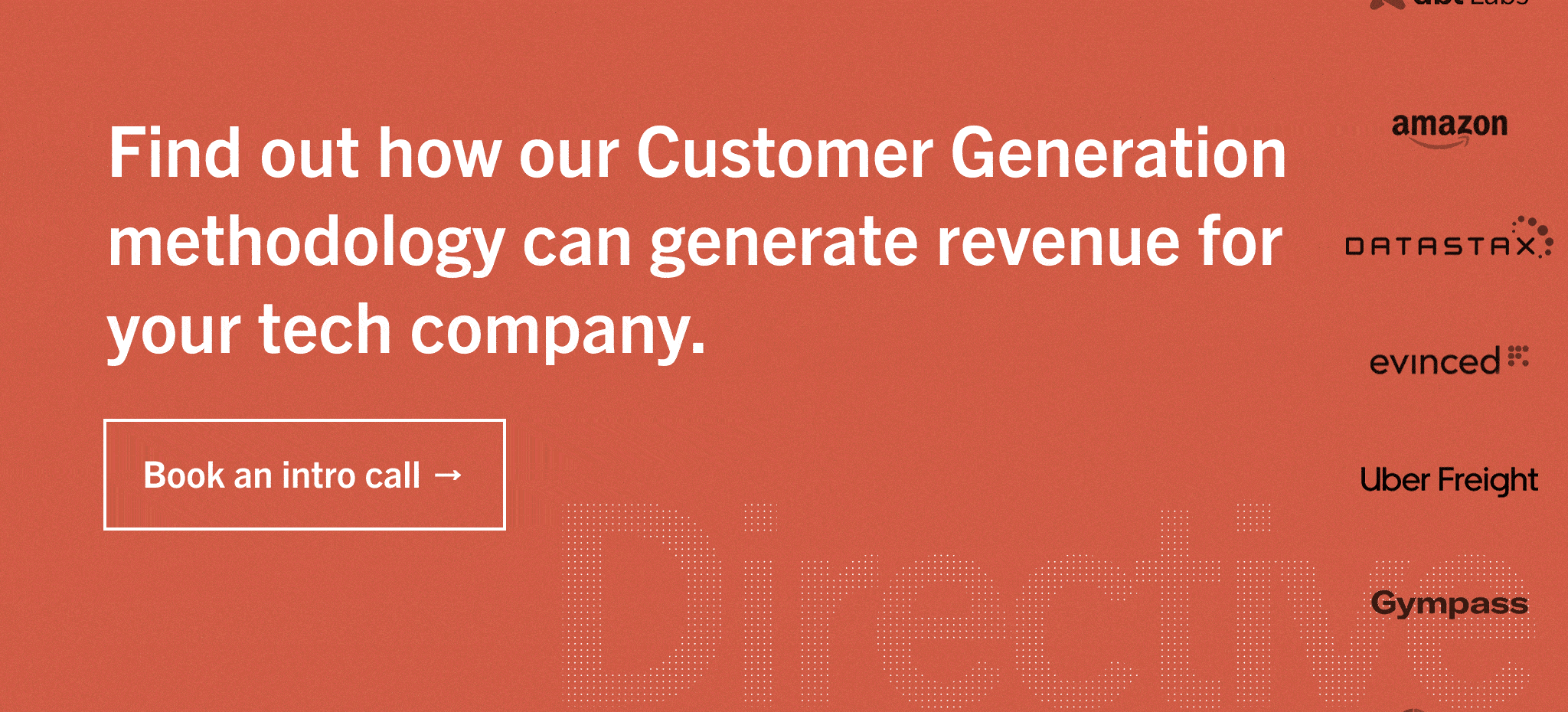What is a SERP?
SERP is an acronym that stands for “search engine results page”, and is a list of webpages that appear after someone searches on Google and other search engines. For digital marketers and business owners involved in SEO practices or other forms of digital marketing, the term SERP is often heard.
If you’re looking to optimize your website so that it will rank higher on the first search engine results page or working with pay-per-click advertising, a SERP is viewed as one of the most important pages on the web.
The higher your business ranks, the more credibility, and exposure your business will have across various search engines. In short, a SERP is where you want your business to be.

How Does a SERP Work?
SERPs are simple enough to understand: when an Internet user types a word or phrase into a search engine, the web will immediately pull the most relevant webpage listings based on keyword and keyword phrase rankings.
Listings are either organic or found through Google Ads. When a page is ranking organically, it means that the content has a strong keyword strategy, an important factor for a high rank. In other words, a high ranking on a SERP indicates a strong keyword strategy, which means that your SEO is working.
It is important to remember that each SERP is unique. All search engines aim for their users to have a one of a kind experience that meets their needs and provides relevant results. With this in mind, each search engine works to tailor their SERP so that each Internet user, depending on their location, search engine, and other factors, finds what they’re looking for within seconds of searching. This also means that two people can use the same search engine, type in the exact same keywords, and still get different results.
In addition to each SERP being uniquely tailored to the needs of their users, SERPS are also always evolving. SERP pages have developed in appearance over time in order to stay up to date with modern technology.
This means that search engines have also adapted their SERPs to provide their users with an interface that’s both easy and informative. As time goes on, the visual representation of a SERP may change in order to stay up to date with the evolving technology around it.

Why are SERPs Important?
SERPs are important because they provide your audience with a chance to encounter and get acquainted with your business website. Think about the SERPs you have seen when using a search engine: there is always a title and a small description of each site that comes up on a search engine result page, always based on the proportion of keyword matches.
The higher the proportion of exact keyword matches in the title and small description (also known as the meta-description) of your site, the greater the chances are that your site will rank higher. Of course, it is important to remember that while keywords and keyword phrase matches are important, this is not what SEO is all about and that there is much more to search engines assigning websites certain ranks.
What’s the Difference Between Organic and Paid Search Results?
On every SERP, there are two main types of content: organic results and paid results. Both types of results can be optimized, but it is the organic results that require more work in order for them to rank higher and drive traffic.
Organic Results
Organic results are the listings of webpages that appear as a result of a SERP without paid help. The rank of an organic result depends on the search engine’s algorithm as well as the relevancy of the keywords used within the content. Search engine optimization plays a large role in the rank of a website or webpage.
Paid Results
Paid results are different from organic results because they have paid to be displayed by an advertiser. While paid ads used to be small, text-based ads that usually popped up right above or next to organic results, today they can be large ads in various formats that reach hundreds or thousands of users.
Typically, advertisers use PPC for paid results on a SERP. These ads are then ranked and position depending on their quality and other factors the search engines are looking for. Paid results are faster acting than organic ones because they become visible the moment they’ve been paid for, driving traffic much faster than organic results.

SERP - What is the Bottom Line?
When all is said and done, a SERP is a search engine results page, an important part of the web to keep track of for online businesses. Every piece of content on the Internet has the potential to appear on a SERP, but where it appears depends on a number of factors.
If not for SEO, keyword targeting strategy, paid advertisements, conversion rate optimization, and more, most webpages would not rank highly on a Google SERP.
Without a high rank, most webpages will go unseen, which is why it is important to implement the best marketing strategies and practices to ensure your website earns a high ranking.
At Directive, our SaaS SEO consultants work with clients to drive their business KPIs every day. Let us help your website earn a high ranking on every SERP it can.
